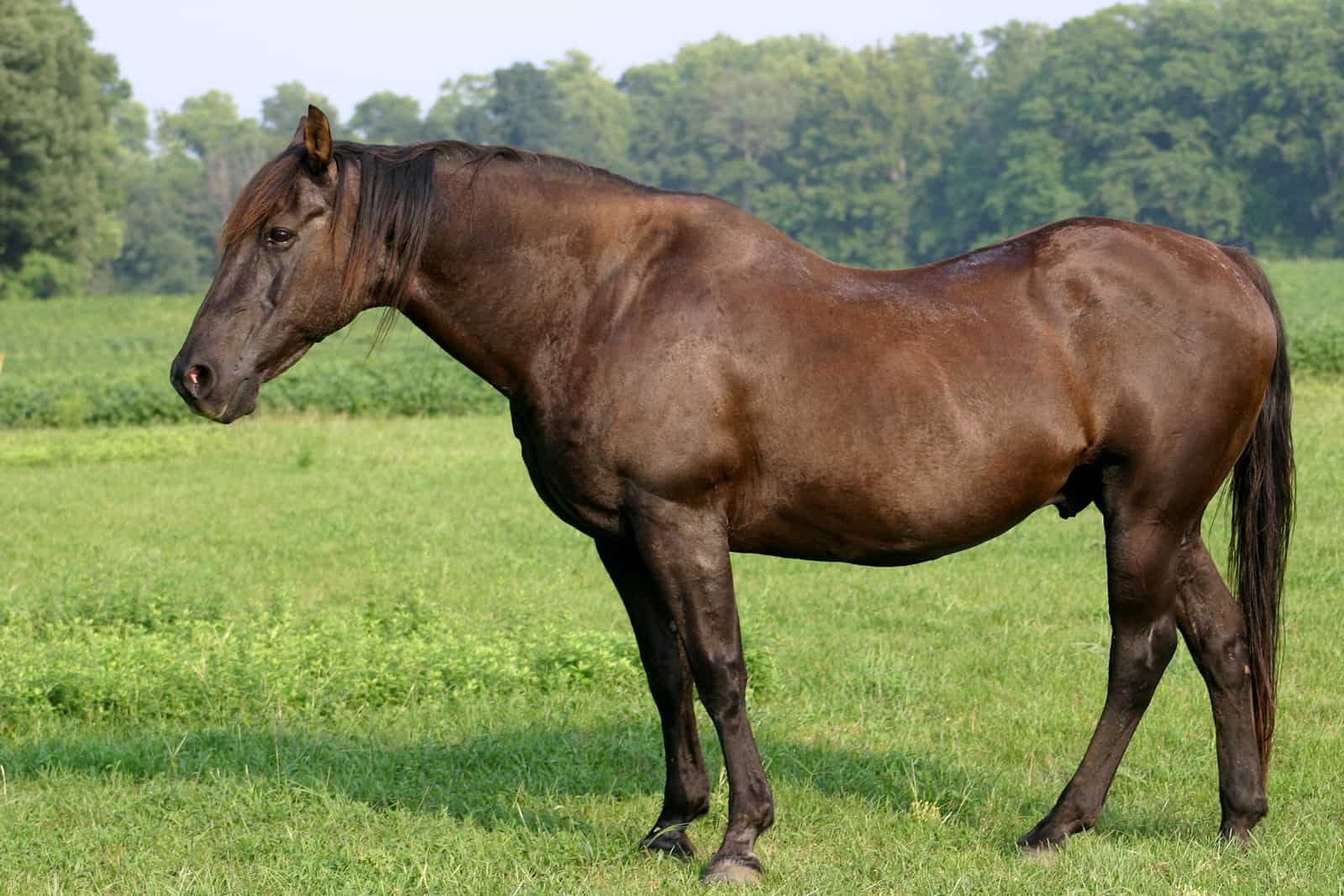Potential Equine Insulin Dysregulation Therapeutic Studied

In a recent study led by Melody de Laat, PhD, from Queensland University of Technology, in Australia, researchers sought to investigate three things:
- The tissue distribution of equine glucose-dependent insulinotropic polypeptide receptors (eGIPR)—receptors found mainly in gut that, when in the presence of glucose molecules, signals an increase in insulin secretion;
- If a GIP antagonist could block eGIPR;
- If a relationship exists between GIP concentration and obesity.
First, the researchers obtained pancreas samples from five healthy mixed-breed horses; they also gathered heart, kidney, lamellae, tongue, skeletal muscle, and duodenum (a part of the small intestine) samples from four healthy horses post-mortem in a previous study.
The team extracted tissue RNA from each sample and produced and sequenced a complementary DNA sample. This allowed them to determine specific gene expression in the various tissues. They confirmed eGIP gene expression in the heart, liver, pancreas, kidney, and duodenum; found very small amounts of eGIP expression in the lamellae and tongue; and observed no evidence of eGIP gene expression in the skeletal muscle
Create a free account with TheHorse.com to view this content.
TheHorse.com is home to thousands of free articles about horse health care. In order to access some of our exclusive free content, you must be signed into TheHorse.com.
Start your free account today!
Already have an account?
and continue reading.
Written by:
Kristen M. Janicki, MS, PAS
Related Articles
Stay on top of the most recent Horse Health news with



















